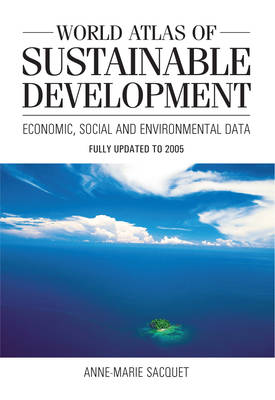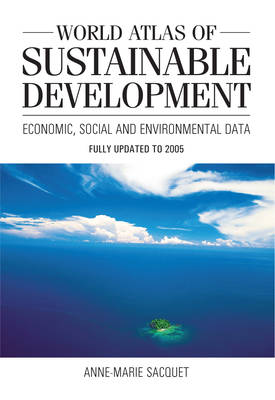
- Retrait gratuit dans votre magasin Club
- 7.000.000 titres dans notre catalogue
- Payer en toute sécurité
- Toujours un magasin près de chez vous
- Retrait gratuit dans votre magasin Club
- 7.000.0000 titres dans notre catalogue
- Payer en toute sécurité
- Toujours un magasin près de chez vous
Description
The concept of 'sustainable development' was first introduced at the time of the 1992 Earth Summit in Rio, where over 170 heads of state signed a plan of action for the 21st century - Agenda 21. Agenda 21 sets out a proposal for sustainable development that combines several goals: preservation of the environment, social equity and economic efficiency, aiming to ensure the well-being of the world's people without compromising the future of generations to come.
This Atlas proposed an unprecedented 'reading' of the global situation, supported by socio-economic, geopolitical and environmental data. Topics including access to education, the gulf between living standards in the North and the South, women's civil rights, climate change and international solidarity are presented along with a series of fully updated 30 information sheets and 40 full-colour maps.
'World Atlas of Sustainable Development' is a unique and valuable tool for individuals and organizations interested in development, whether they work in businesses, administration, local authorities, associations or education, as it is designed to be concise, accessible and objective.
Spécifications
Parties prenantes
- Auteur(s) :
- Editeur:
Contenu
- Nombre de pages :
- 78
- Langue:
- Anglais
- Collection :
Caractéristiques
- EAN:
- 9781843311669
- Date de parution :
- 01-03-05
- Format:
- Livre broché
- Format numérique:
- Trade paperback (VS)
- Dimensions :
- 169 mm x 243 mm
- Poids :
- 267 g

Les avis
Nous publions uniquement les avis qui respectent les conditions requises. Consultez nos conditions pour les avis.






